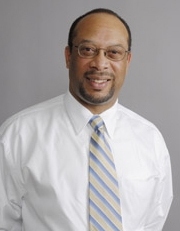June 2008

NOTES FROM THE ACADEMIC SENATE CHAIR
MICHAEL T. BROWN
Dear Colleagues,
As you know, President Dynes’ ended his term of office on June 15 to return to teaching and research. Bob held the mantle of leadership during an extraordinarily challenging and tumultuous five-year period in the University’s history, and I would like to thank him again for his dedication, perseverance, and service during that time. As we seek to heal past wounds and look ahead to a brighter future, we should also not forget this president’s genuine love for UC and his many accomplishments – particularly his effort to establish a measure of fiscal stability during a period of hemorrhaging state funding, and his leadership during UC’s successful struggle to retain its management of Lawrence Berkeley and the other national laboratories. I would also like to note that Bob has been a true and tireless supporter of diversity, a constant backer of faculty issues, and a champion of shared governance. Rarely has the Senate enjoyed a more open and productive relationship with a president, and for that we are very grateful. In May, Academic Council honored Bob with a resolution of appreciation, and I have also asked him to prepare a final message to the faculty, which is included to the right. We all wish Bob and Ann the very best in the future.
Please join me in greeting with hope and enthusiasm, President Mark Yudof. The Academic Assembly got a chance to talk with the new president by phone during our June 11 meeting. Vice Chair Croughan and I have also met with him, and we are very excited about the future of UC and the tradition of shared governance. If you host him on your campus, don’t spare the breakfast tacos!
We are committed to working with President Yudof on solutions to the many challenges facing the University, not the least of which is the need to reinvigorate public investment in higher education. This can be accomplished most effectively by broadening access to UC, increasing institutional diversity, and better communicating the impact of faculty research and teaching on the State; in short, we need to make it clear that an investment in higher education is an investment in hope, opportunity, health, and economic prosperity. The Senate will continue to work with the president, the Regents, and the rest of the UC community to ensure that UC is ever more worthy of this investment.
At its Legislative Day in Sacramento on April 2, the Intersegmental Committee of Academic Senates (ICAS) met with legislators, legislative aides, and lobbyists to discuss the state budget situation and the decline in higher education funding. Legislators told faculty they are looking to the segments for new and collaboratively agreed-to ideas about how to address the state budget deficit and enhance the revenue stream. ICAS agreed that the voice of higher education is stronger when faculty and administrative leaders from all three segments work together to present a unified, coherent message about their needs to legislators.
Systemwide, we are concerned about the impact of the state budget deficit on the “Power of Ten” concept. Vice Chair Croughan and I feel strongly that UC’s ability to maintain and build its current level of excellence is predicated on the strength of each and every campus in our 10-campus system. The UC Idea is that all campuses can attain to the highest standards of excellence for research universities and should be fully supported to do so. Maintaining a uniform fee and tuition structure and uniform levels of resource support are instrumental to fulfilling to realizing the UC Idea objective, including a properly set and functioning systemwide salary scale and merit system. When working properly, the faculty salary scale system will helps insure that all campuses have the base level financial support to fund the most critical resource for campus excellence -- faculty.
Our freshman and transfer eligibility policies also help assure quality in another vital resource – undergraduate students. I am delighted that the Assembly, acting on the recommendation of the Academic Council, has passed, by more than a 3 to 1 vote, a modified version of the eligibility reform proposal originally forwarded by BOARS. I believe the proposal will help UC attain greater excellence and fairness in admissions, as well as more effective messages to students and to Californians
UCOP continues to reorganize its operations and business practices in an effort to increase efficiencies. While we all hope the restructuring will result in a “leaner, meaner” systemwide office, we do not want these efforts to come at the expense of vital services provided by UCOP to the campuses and the Senate. Many faculty are concerned that the Senate’s ability to collect data and carry out its responsibilities could ultimately be impaired. We are working with UCOP to identify our most critical needs to help ensure that the re-organization will not result in the disruptive loss of institutional memory or campus and Senate effectiveness.
At the May 14 Regents meeting, I presented the final report of the Undergraduate Work Team of the Study Group on University Diversity, which I urge you to read. The report notes that a more diverse University is critical. It also showed that K-12 is broken – but not for everybody. The Regents received the report with a strong call to respond to the need to not just point a finger to K-12, but to be part of the solution to solving what ails it. Moreover, they strongly signaled that while our admissions standards must remain high, they should allow sufficient flexibility to assess achievement broadly and in the context in which it occurs. Consequently, I expect The Regents to respond positively to the Assembly’s eligibility reform recommendations
It has been an eventful and busy year! Enjoy the summer. As always, your comments are welcome.
Fiat Lux,
Michael T. Brown
